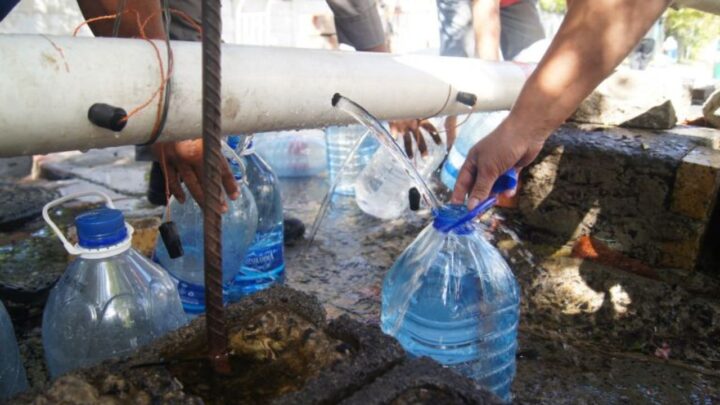The ongoing water crisis in South Africa has reached a critical stage, particularly in Gauteng and Cape Town, where thousands of residents are facing prolonged water outages. With taps running dry for days, communities are struggling to cope with the lack of supply amid rising temperatures and increasing demand. Authorities have warned that the situation may worsen if urgent infrastructure upgrades and water conservation measures are not implemented soon. The crisis has sparked frustration among residents, pushing the government to introduce new emergency response plans and stricter water usage restrictions.
Severe Water Shortages Hit Gauteng
The province of Gauteng has been among the hardest hit by the worsening water shortage crisis, with areas like Johannesburg, Ekurhuleni, and Tshwane experiencing low reservoir levels. Rand Water, the main supplier, has attributed the issue to high consumption, ageing infrastructure, and ongoing power failures affecting pump stations. Local municipalities have urged residents to reduce usage immediately, while water tankers have been dispatched to affected neighborhoods. This service disruption has left many households without water for more than three days, sparking growing public anger and demands for accountability from the Department of Water and Sanitation.
Western Cape Faces Prolonged Drought Conditions
Meanwhile, the Western Cape is also battling prolonged drought conditions, worsening the water crisis in Cape Town. Despite lessons learned from the “Day Zero” scare in 2018, dam levels have been dropping due to below-average rainfall and rising population demands. The City of Cape Town has implemented water-saving regulations, including restrictions on garden watering and car washing. Officials are also exploring long-term projects such as desalination plants and groundwater extraction to diversify the province’s water sources. Residents have been urged to remain vigilant and continue saving every drop as the crisis deepens across the region.
Government Response and Infrastructure Upgrades
The South African government has promised a multi-phase intervention to tackle the ongoing water supply challenge. Key measures include upgrading old pipelines, improving dam storage capacity, and investing in smart water management systems. The Department of Water and Sanitation has allocated additional funds to municipalities for maintenance and repair of critical water infrastructure. Officials have emphasized the importance of community cooperation in reducing wastage and reporting leaks. However, experts warn that unless substantial investment and planning occur immediately, South Africa may face recurring water scarcity in the coming years.
| Region | Current Status | Main Cause | Expected Recovery | Government Action |
|---|---|---|---|---|
| Gauteng | Severe shortage | High demand, power cuts | 2–3 weeks | Water tankers, restrictions |
| Cape Town | Moderate shortage | Drought, low dam levels | By late October 2025 | Desalination plans, rationing |
| Tshwane | Intermittent supply | Infrastructure failure | Within 10 days | Pipeline maintenance |
| Ekurhuleni | Critical outage | Reservoir depletion | Under assessment | Emergency tankers |

How Residents Can Conserve Water Effectively
As the South African water shortage intensifies, residents can make a real difference by following smart water-saving habits. Simple steps include fixing household leaks, collecting rainwater, and reducing non-essential water usage like car washing. Installing low-flow taps and using greywater for gardening can also lower daily consumption. Community awareness programs are being launched to promote sustainable use and collective responsibility. Authorities stress that every litre saved contributes to national recovery efforts and ensures long-term water security for millions of South Africans.
FAQ 1: What is causing the water crisis?
It’s mainly due to high demand, infrastructure issues, and drought conditions.
FAQ 2: Which areas are most affected?
Gauteng, Cape Town, and parts of Ekurhuleni are currently facing severe shortages.
FAQ 3: How long will the outage last?
Recovery times vary, but most areas expect improvements within 2–3 weeks.
FAQ 4: What can citizens do to help?
Residents should save water, report leaks, and follow municipal usage guidelines.
How can residents in Gauteng and Cape Town prepare for multi-day water outages?
By storing water and essentials, staying updated, and conserving water.






